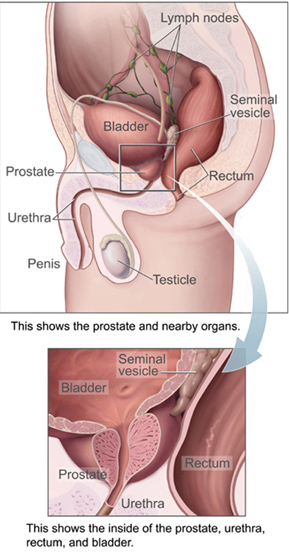What is the prostate?
The prostate is a walnut-sized gland that forms part of the male genitourinary tract. It encircles the urethra (tube draining urine from the bladder), sitting below the bladder and in front of the rectum.
The main purpose of the prostate is to produce semen, which helps to protect and nourish sperm.
Prostate cancer is the most common male cancer responsible for 10,000 deaths every year in the UK. 1 in 8 men will get prostate cancer in their lifetime.
What is a PSA test?
This is a blood test measuring the amount of prostate-specific antigen (PSA) in your blood. PSA is a protein produced by the prostate, the purpose of which is to liquefy sperm. It is normal for all men to have a small amount of PSA in their blood, and this amount rises as you get older. A raised PSA level may indicate a problem with your prostate, but not necessarily cancer.
What commonly causes a raised PSA?
- Enlarged prostate (BPH)
- Infection or inflammation in the prostate
- Urine infection
- Prostate cancer
It is important to note that 76% of men with a raised PSA do not have prostate cancer.
What investigations will be undertaken?
You will be offered a detailed assessment and risk stratification based on prostate examination and PSA level. Multiparametric MRI (mMRI) is normally the first test performed, mapping the location of any tumours. Transrectal ultrasound (TRUS) guided biopsies can then be performed. When used in conjunction with mMRI, biopsies can be specifically targeted to any areas of concern in the prostate.
What treatments are available?
There are a number of different treatments available for prostate cancer. Mr Gill will discuss all the options with you, tailoring treatment to your individual circumstances. Active surveillance is a common strategy for men with non-aggressive tumours, avoiding the side effects of radical treatment.
You will have rapid access to other available treatments:
- Robotic prostatectomy
- Radiotherapy
- Brachytherapy
- High intensity focused ultrasound (HIFU)




